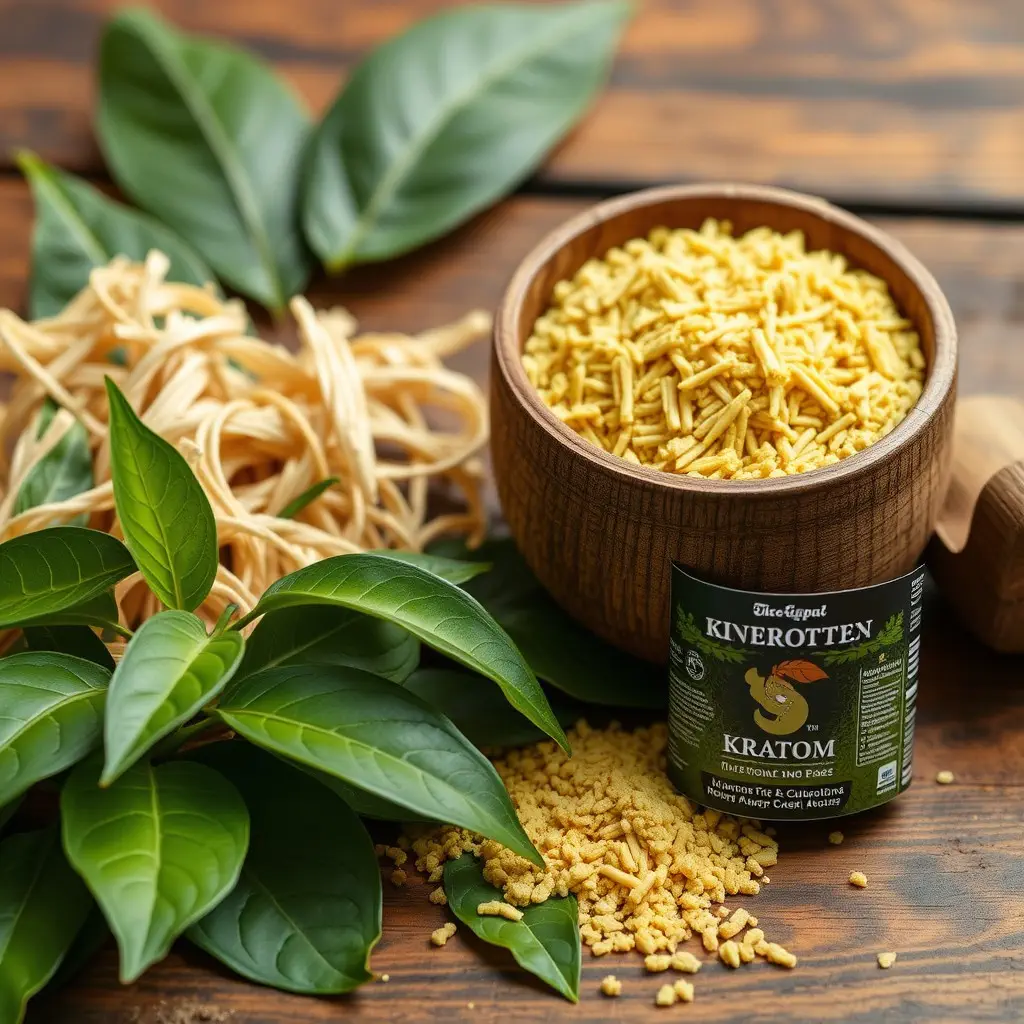Kratom, a tropical evergreen tree from Southeast Asia, contains alkaloids like mitragynine and 7-hydroxymitragynine, which have led to its use as a potential natural aid for managing stress and anxiety. It interacts with opioid receptors and neurotransmitter systems, offering both mood enhancement and pain relief. However, its diverse effects and potential for dependency require careful consideration, especially for those in regulated environments like the military, where it's essential to be aware of its variable legal status and the Army's stance on it. The U.S. Army indeed tests for kratom use due to its classification as a Schedule I substance by the DEA, which carries legal risks and can result in disciplinary action within the military framework. Given these considerations, soldiers must weigh the potential benefits against the risks and consult with healthcare providers before using kratom, considering individual sensitivity, strain effects, and personal circumstances. The choice of high-grade, lab-tested products from reliable sources is crucial to ensure safety and efficacy. Overall, the use of kratom in the military context is complex and subject to strict regulations, necessitating a well-informed decision-making process for those considering it as a stress management tool.
Navigating the complexities of stress and anxiety can be a daunting task, with countless remedies claiming to offer relief. Among these, kratom has emerged as a potential natural aid. This article delves into the role of kratom in managing stress and anxiety, providing insights into its effects and proper usage. It also addresses the pressing concerns for soldiers, including the Army’s stance on kratom and what tests for this substance might entail. Furthermore, we explore safe use strategies to optimize kratom’s benefits for anxiety relief, ensuring readers are well-informed about dosage, strain selection, and best practices.
- Understanding Kratom's Role in Stress and Anxiety Management: A Closer Look at Its Effects and Usage
- The Army's Stance on Kratom: What Soldiers Need to Know About Testing Policies and Legal Considerations
- Safe Kratom Use for Stress Relief: Dosage, Strain Selection, and Best Practices for Anxiety Reduction
Understanding Kratom's Role in Stress and Anxiety Management: A Closer Look at Its Effects and Usage

Kratom, a tropical evergreen tree native to Southeast Asia, has garnered attention for its potential role in managing stress and anxiety. The leaves of kratom contain compounds called alkaloids, primarily mitragynine and 7-hydroxymitragynine, which are believed to interact with the body’s opioid receptors and neurotransmitter systems. These interactions can influence mood and pain perception, offering a sense of well-being or relief from discomfort. While some individuals turn to kratom as a natural alternative for stress and anxiety management, it is crucial to approach its use with caution due to its complex effects and potential for dependency. Users interested in exploring kratom should be aware that the substance’s legal status varies by region and may face scrutiny, such as testing within organizations like the military. For instance, does the army test for kratom? This question is pertinent for those considering its use while serving. It’s important for potential users to consider the scientific research on kratom, which suggests that it can have both stimulating and sedative effects, depending on the dosage. Lower doses might produce energizing and mood-elevating effects, which could be beneficial in managing stress. Conversely, higher doses may induce sedation and analgesia, potentially aiding in the relief of anxiety symptoms. Nevertheless, the long-term effects of kratom remain a subject of ongoing study, and its use should be carefully considered within the context of established mental health practices and in compliance with any regulatory guidelines, especially for those in sensitive positions such as military personnel.
The Army's Stance on Kratom: What Soldiers Need to Know About Testing Policies and Legal Considerations

Soldiers interested in mitigating stress and anxiety through natural means may consider the use of kratom, a plant supplement from Southeast Asia known for its potential mood-enhancing and pain-relieving effects. However, before integrating kratom into their wellness regimen, it’s crucial to understand the Army’s stance and testing policies regarding this substance. As of the latest information available, the U.S. Army does indeed test for kratom. This means that soldiers are subject to drug tests that can detect the presence of kratom in their system. It’s important for soldiers to be aware that kratom is a federally controlled substance under the DEA’s Schedule I, which classifies it alongside drugs with no currently accepted medical use and a high potential for abuse. Soldiers should exercise caution and consider the legal implications before using kratom, as its status may impact their military careers. The legality of kratom varies by state, and while it might be legal in some areas, its presence on a drug test could lead to disciplinary action within the military framework. Therefore, soldiers must weigh the potential benefits against the risks associated with its use and adhere strictly to the Army’s regulations to avoid any negative repercussions for their service record. It’s also advisable for soldiers to consult with medical professionals before incorporating kratom into their health routines, ensuring they receive accurate guidance tailored to their individual circumstances.
Safe Kratom Use for Stress Relief: Dosage, Strain Selection, and Best Practices for Anxiety Reduction

Kratom, a plant native to Southeast Asia, has gained attention in various circles for its potential stress and anxiety-relieving properties. When considering kratom for stress relief, safe usage is paramount. The correct dosage plays a crucial role; typically, a moderate dose is recommended as a starting point, with individuals sensitive to its effects possibly requiring less. It’s essential to consult with a healthcare provider before incorporating kratom into any wellness regimen, especially given the nuances in how different strains can affect users. The Maeng Da and Bali strains are often favored for their calming and mood-enhancing properties, which may aid in reducing stress and anxiety levels.
For those exploring kratom as a natural approach to managing stress and anxiety, it’s important to adopt best practices. This includes sourcing high-quality, lab-tested kratom products from reputable vendors to avoid contaminants or adulterants. Additionally, users should be mindful of their mental state and emotional triggers that may exacerbate stress or anxiety. It’s also advisable to adhere to recommended dosage guidelines to mitigate the risk of overstimulation or dependency. Regular breaks from use are encouraged to assess its impact on one’s well-being, and individuals should be aware that kratom’s effects can vary based on personal physiology. This variability underscores the importance of a personalized approach to dosage and strain selection for optimal stress and anxiety management. While some may find kratom beneficial, others might explore alternative natural remedies or professional therapeutic interventions tailored to their specific needs.
When addressing stress and anxiety, exploring the role of kratom as a potential management tool provides valuable insights. It’s crucial for individuals, particularly those in high-stress environments like the military, to understand both the efficacy and the legal framework surrounding its use. The article has delved into how kratom can be used safely for stress relief, emphasizing dosage considerations, optimal strain selection, and best practices to effectively mitigate anxiety. For soldiers curious about the army’s stance on kratom, it’s essential to be aware of testing policies and legal implications within military service. By integrating this knowledge responsibly, individuals can make informed decisions about incorporating kratom into their wellness routine, thereby enhancing their mental health and overall quality of life.






